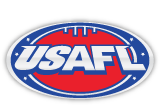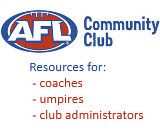Saverio Rocca Signed by the Philadelphia Eagles
|
|
Following are three articles which were published in the Philadelphia Daily News:

AUSTRALIAN RULES LEGEND HOPES FOR HANG TIME
By Mark Kram
kramm@phillynews.com
GETTING HERE was hard enough. Staying here will be even harder.
Six weeks ago, Saverio Rocca boarded an airplane in Australia to continue his quest to become an NFL punter with the Eagles. The 6-5, 265-pound Rocca squeezed into a coach seat and endured the 15-hour journey to Los Angeles, only to discover that his 3-hour layover there could be as long as 3 or 4 days because a snowstorm had played havoc with air traffic across America. So instead of flying into Philadelphia, he eventually found a seat on a flight to Washington, where he then boarded a train to the 30th Street Station. Hang time between departure and arrival: 43 hours.
"Just getting here was an experience," Rocca says. "I had to curl up in the corner at the airport in LA to get some sleep."

Saverio Rocca, the challenger to incumbent Eagles punter Dirk Johnson, gets off a kick for the North Melbourne Kangaroos in 2004.
Chances are, you have not heard of Sav Rocca unless you happen to be a fan of Australian Rules Football. He was a star player for 15 years for the Collingwood Magpies (1992-99) and the North Melbourne Kangeroos (2000-06), during which he recorded 748 goals in 257 games. Followers of the Australian Football League and the NFL say Rocca was the equivalent in stature in Australia of Green Bay quarterback Brett Favre in the United States. He was so popular over there that a fan placed a farewell tribute to him on YouTube.
The 34-year-old Rocca now hopes to follow in the footsteps of former Australian rules stars Darren Bennett, who played 11 seasons with San Diego and Minnesota, and Ben Graham, who has punted the last two seasons for the New York Jets.
The Eagles gave Rocca a tryout last November and were intrigued enough to offer him a 3-year "futures contract" in January. He has been working out with the club and will be in uniform tomorrow when minicamp begins. While it is not uncommon for teams to bring in an "extra leg" for such events, it appears that Rocca has a genuine shot to unseat incumbent Dirk Johnson, who has been plagued by injury and a lack of effectiveness. Last year, the Eagles were 23rd in the league in gross yards punting and 28th in net yards punting. So an opportunity would appear to be there for Rocca.
Sources say the Eagles have been impressed so far. The word is that he has had a big leg in his workouts. Reportedly, the hang time on his punts has been clocked at 5.4 seconds, which is well above the 4.5 range that is generally considered adequate. Moreover, sources indicated that Rocca is progressing well in his effort to learn to be the holder for David Akers, a job that for years had been held down by backup quarterback Koy Detmer. When Detmer was cut last summer, the job was inherited by Johnson, who did not especially excel at it. Detmer was re-signed last year as the holder for the playoffs.
So what have the Eagles told Rocca?
"Two or three weeks ago, they said I was 50-50," he says. "Hopefully, if I keep working hard and keep learning, I can get that to 70-30 in my favor. The bottom line is that there are no guarantees."
Australian Rules football is a hybrid of American football, soccer and basketball. The game is played on an oval, 250 yards long by 200 yards wide. The teams play 18 to a side, with four reserves. The ball - which is rounded at the ends - is passed by kicking it. One can also "hand ball it," which is not unlike a volleyball serve. A player running with the ball is required to bounce it at least every 15 yards. Defense is played one-on-one, the same as they do in the NBA, and points are scored by booting the ball between the uprights for one or six points. Rocca says that some players run a total of 12 to 15 miles a game, and that it is a sport that can "take a toll on the body with the tackling and hitting" involved. He has had shoulder, knee and ankle injuries through the years.
"You get to the age where your body just says, 'No more!' " says Rocca, who has been joined in Philadelphia by his wife, Rose, and their two sons, Matthew, 4, and Lucas, 1 1/2. "I probably could have gone on another year, but I came to the conclusion it was time to get out."
He chuckles and adds, "Knowing the way it is over here, I should have come over 10 years ago. It would have been a lot better for my body."
But that idea did not occur to Rocca until his career in Australia began winding down. "The NFL always seemed so far away when I was younger," says Rocca, adding that AFL players can earn the equivalent of $100,000. Financially, he did well enough to buy a piece of two restaurants. He has a tract of rural property that he would like to build a house on at some point. But when he decided to pack it in with the Kangeroos, he figured he could "get another 3, 4 or 5 years" out of his body athletically by playing in the NFL.
"I was looking for the next phase in my life," he says. "I knew I had a strong leg and that I could still kick the ball a long way. I knew that could translate into the NFL. I know punting is just a small part of the American game, but if I can do it well, I think there will be a place for me over here."
His wife has been supportive. "He had been thinking about it for 6 years or so," says Rose, who works as a dietician at a cancer institute in Australia. "But it was just a year ago that he decided to go ahead and do it. He knew it would be a big commitment. We always said we would like to live overseas at some point. But because of the way contracts are here, we have to more or less put our lives on hold. We have no idea where we will be in September."
Bennett and Graham have been a big help to Rocca, who came to the United States last fall when a tryout was lined up for him in Buffalo. "The hope was that I would get picked and sent to NFL Europe," he says. Bennett worked with him for a week in San Diego during that period. Rocca would have a kicking session and he and Bennett would analyze the video of that. While Bennett could not be reached because he was on a hunting expedition in New Zealand, Rocca says, "He showed me what I was doing wrong, and gave me a lot of insight into what happens in a game."
Such as?
"Specifically, you have to always be aware from where the rush is coming from," Rocca says. "Is it coming from the right, left or center? He told me, 'Try not to kick into the side of heavy traffic. But if all else fails, just get it away.' "
Rocca landed with the Eagles when Buffalo did not immediately sign him. Graham introduced him to his agent, Boston-based Kristen Kuliga, who worked quickly to get Rocca the Eagles tryout. Scheduled to fly back home that Saturday, Rocca called Kuliga on Tuesday and had his audition with the Eagles by Thursday. She said Rocca is in the same situation Graham had been before the Jets signed him.
"Both of them were impressive enough in their workouts that the team offered to work with them during the offseason," says Kuliga, who also represents Doug Flutie, the former CFL and NFL quarterback. "Sav has to just keep working hard, stay focused and learn the technique of punting in the NFL."
Rocca concedes his approach to kicking here has been altered somewhat. "Our kicking [in Australia] is generated through a lot of steps to the ball," he says. "Here, all the power is generated with two or three steps. Also, the flight of our ball is generally a lot lower - probably like a quarterback pass - not with the high arc they have over here."
Whatever happens in the weeks ahead, Rocca says he knows it will be a worthwhile experience. He says if the Eagles end up cutting him, he would be more than willing to give it a shot with some other team.
"But if nothing else comes up, I will know that I gave it a try," he says. "The last thing I wanted to do was let the opportunity pass and wake up 20 years from now, wondering what could have been."
Grinning, he adds, "I am here. I am working my butt off. And I am enjoying every minute of it."
AUSSIE RULES ARE PLAYED HERE TOO
Sav Rocca can count on at least one group with a rooting interest in his success here. That would be the members of the Philadelphia Hawks, an Australian rules football team that has been in existence since 1998.
Part of the USAFL, the Hawks and other American teams are sponsored by Australian Football League clubs. Philly is a sister organization of the Hawthorn Hawks, a storied club from Melbourne.
The roster of 30 players is a mix of Americans, Aussies and Irish. They practice weekly and play twice a month, from March to September, with a "Super Bowl" to cap the season. Games here are played in Fairmount Park and FDR Park. More on the team and the league can be found at phillyhawks.com.
Team president Ryan Kavanagh says there's no one sport that prepares players for the speed, agility and kicking ability needed to compete. Some have a background in soccer, others in volleyball and basketball.
"The contact is different from rugby or American football," he wrote in an e-mail, "but there's plenty of it. I think the commonality is having something to do after work that is healthy, unique and fun."
Pat Miller, who helps handle the team's marketing and provided the football for the Rocca Page 1 photo, says they're developing what's called a metro league this year. He calls it "a smaller version of the game, with more action, less players and smaller fields."
You can catch this hybrid of Australian rules at 10:30 a.m. Saturday at FDR Park. The first league game is June 9 vs. North Carolina. Don't expect to be standing alone.
"Our metro games attract around 20 to 30 people," Miller says, "and when we play local teams such as New York City and Baltimore, we can get about 50 watchers standing right next to the pitch." *
PRIMER ON AUSTRALIAN RULES FOOTBALL
By Paul Vigna
Australian Rules Football? Well, it used to be a staple on ESPN back in its infancy (1979). Late night. Middle of the day. Remember?
"I'm sure it was started in our first year, probably the first few weeks or months," said ESPN spokesman Dave Nagle, "and to speak of our programming quality, it was a highlight."
No one even explained the rules; all the network did was run tapes of the Australian broadcasts. But it drew a growing and curious audience. "People took to its bizarre and unique aspects," Nagle said. "It definitely was a cult classic."
The sport might have disappeared from our airwaves, the last game airing on ESPN in 1988, but it still dominates as the fun and games king of Australia.
A FEW BASICS
Created: 1858.
Ball: Oval, weighing between 16 and 17 ounces, 22.4 inches from end to end and 29.1 inches around.
Field: Oval, with boundaries that can range in width between 120 and 200 yards) and in length between 145 and 250 yards.
Goal posts: Two, on either end, with a shorter set, called behind posts, on the outside of the taller ones.
Scoring: 6 points, called a goal, for kicking the ball cleanly through the posts, and 1 point for a "behind," when the ball crosses a behind line or crosses the goal line without all the conditions for a goal to be scored.
Players: 18 per team on the field.
Ball movement: You can run with the ball and kick it, but can't throw it. Passing it to a mate is allowed by punt-kicking it or punching it with a clenched fist, called handballing.
Officials: 3.
Periods: 4, lasting from 15 to 25 minutes in different leagues.
Attendance: One of five sports leagues in the world that draw, on average, more than 30,000 per game.
Season: The Australian Football League plays from March to August (early autumn to late winter in Australia), with the finals in September.
Teams: 16.
Web site: www.afl.com.au
Stories courtesy of Philadelphia Daily News
http://www.philly.com/dailynews/sports/
- Philadelphia Daily News (901)
|
|
|





